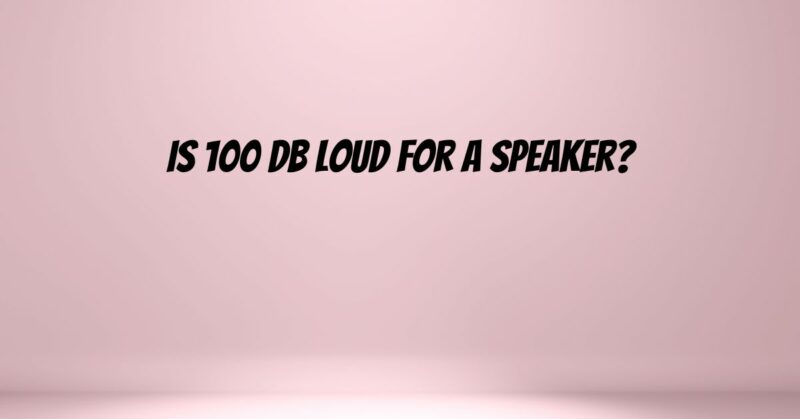Sound and music enthusiasts often use decibels (dB) to quantify the loudness of audio equipment, including speakers. A common question that arises is whether 100 dB is loud for a speaker. In this article, we’ll explore the concept of dB, how it relates to speaker loudness, and whether 100 dB is considered loud in the context of audio playback.
Understanding Decibels (dB):
Decibels are a logarithmic unit of measurement used to express the intensity or loudness of sound. In the context of audio, dB is often used to describe the volume level of speakers, headphones, or sound systems. It’s important to note that the dB scale is not linear but logarithmic, meaning that each 10 dB increase represents a tenfold increase in intensity.
What Does 100 dB Mean for a Speaker?
A speaker producing a sound level of 100 dB is considered quite loud in the context of typical listening environments. To put this in perspective:
- Normal conversation: Approximately 60-70 dB
- Rock concert: Can reach 110-120 dB
- Threshold of pain: Around 130 dB
Therefore, 100 dB falls within the range of sound levels that can be significantly loud, similar to the noise level experienced at a lively party or a busy street corner.
Is 100 dB Harmful?
Exposure to sound levels of 100 dB for extended periods can potentially lead to hearing damage or hearing loss. Prolonged exposure to sounds at this level should be avoided or minimized. Hearing protection, such as earplugs, is advisable when exposed to such loud environments to prevent potential harm.
Speaker Loudness and Speaker Sensitivity:
The loudness of a speaker is influenced by various factors, including its sensitivity rating. Speaker sensitivity is usually measured in dB and indicates how efficiently the speaker converts electrical power into sound. More sensitive speakers can produce higher volume levels with less amplifier power.
A speaker with a sensitivity rating of 90 dB, for example, will generally be less loud than a speaker with a sensitivity rating of 95 dB when both are driven by the same amplifier.
Conclusion:
In summary, 100 dB is considered loud for a speaker and falls within the range of sound levels that can be harmful to hearing with prolonged exposure. Speaker loudness depends on various factors, including the sensitivity of the speaker and the power of the amplifier driving it. It’s essential to be mindful of sound levels and prioritize hearing protection in situations where sound levels reach or exceed 100 dB to prevent potential hearing damage.


